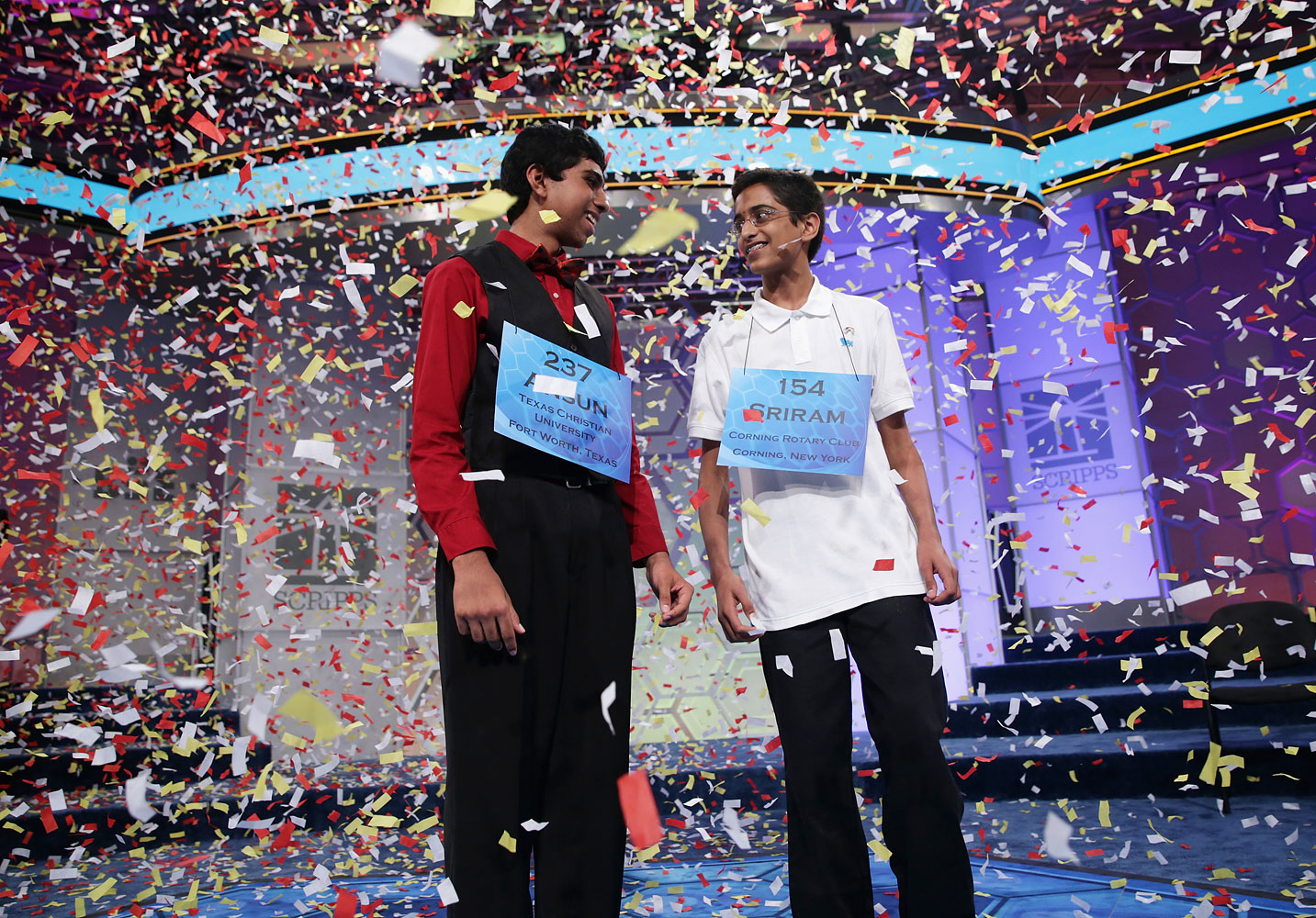
In the first on-stage round of the 2015 Scripps National Spelling Bee, only four of 283 kids heard the dreaded ring of the elimination bell. Most breezed through words like ubiquitous, flamenco, autopsy, howitzer and oregano at the front of a giant ballroom outside Washington, D.C. But when the spellers returned for the second on-stage round Wednesday afternoon, some adjustments had clearly been made to thin the flock.
Wearing giant placards and nervous grins, some 13-year-olds navigated the likes of panophthalmitis (inflammation involving tissues of the eyeball) and triumphantly threw their thin limbs in the air. Others held back tears after missing a vowel in the likes of guayabi (a highly valued hard tough wood from South America) and were politely sent off the stage with the same sound used to summon bellhops in fancy hotels.
By Thursday evening, when ESPN broadcasts the finals at 8 p.m. ET, there will be just a dozen spellers left. Here are seven things that will help viewers fully appreciate this harrowing, inspiring American ritual.
Americans are about three times more likely to be struck by lightning in their lifetime than to make it to the national finals. The odds of being zapped by lightning in one’s life are about one in 12,000, according to the National Weather Service. Of the 11 million kids who compete in the bee on some level, only 283 made it to the competition in National Harbor, Md., this year. That’s roughly 0.000026%, or one in 38,869.
There’s an app for that. Scripps, the sponsor of the bee, debuted an app called Buzzworthy this year. When you sign up, you’re automatically assigned five spellers that are essentially your fantasy football team for the competition. They spell words right, you get points. And each has an endearing bio so there’s no way to remain unattached. (Dear Jeffery “Eager to Embrace Tropical Flavors” Thompson: I’m counting on you.)
Buzzworthy Backstories
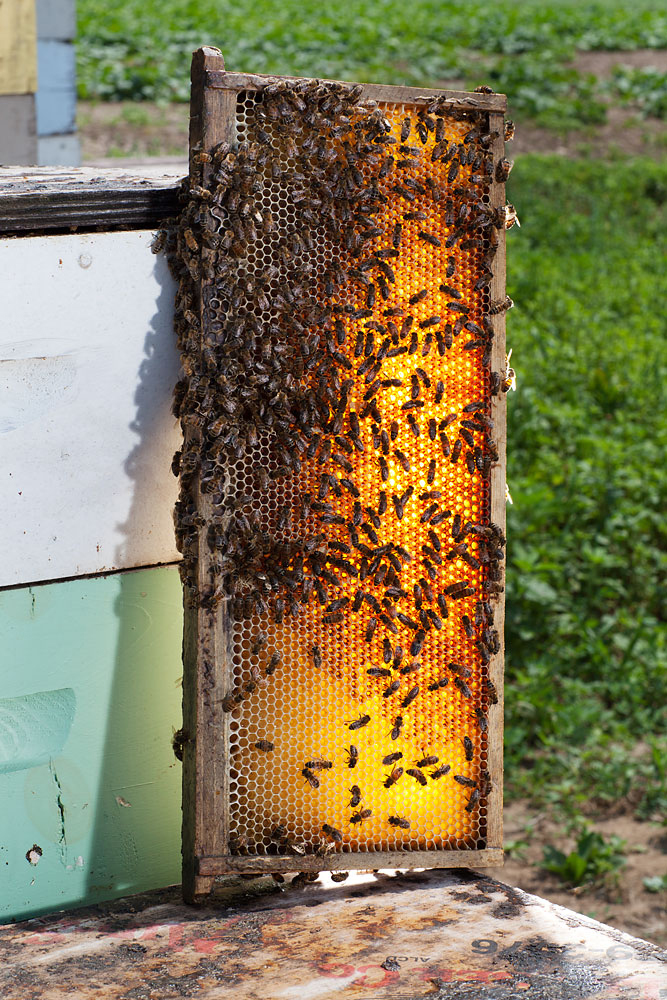
If you have a bee in your bonnet about having bee-stung lips, you might make a bee-line to the plastic surgeon. And if someone asked whether you had work done, you might well them that it’s none of their darned beeswax.
The insects that are so crucial to American agriculture–as Bryan Walsh explains in this TIME cover story–have also been muses to English speakers for centuries. Here are the origin stories behind nine bee-inspired sayings.
Busy Bee
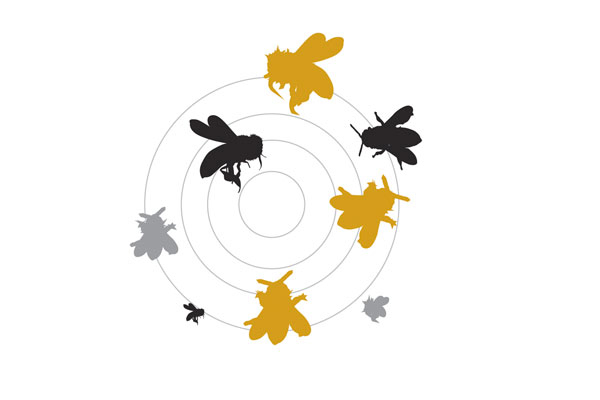
Bees are famous for being industrious, and the comparison of busy people to bees goes back to at least the 16th century. In 1715, English poet Isaac Watts used the phrase in a moral poem advising against idleness and mischief: “How doth the little busy bee / Improve each shining hour, / And gather honey all the day / From every opening flower!” Lewis Carroll later parodied this homily as “How doth the little crocodile” in Alice’s Adventures in Wonderland.
Spelling Bee
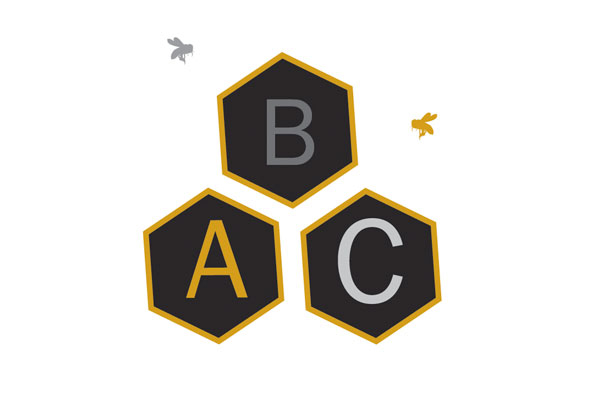
A “bee” has referred to a meeting of people who work together to benefit their group since at least the 1700s. Colonial Americans would join forces in a “husking bee,” for instance, stripping corn for people to eat. The meaning has expanded to include various purposeful gatherings, like the Scripps National Spelling Bee, where brilliant children gather each year to humble American adults by spelling words like stichomythia. Lexicographers have debated whether the original sense is related to the social image of bees buzzing around their hive.
To Put the Bee On
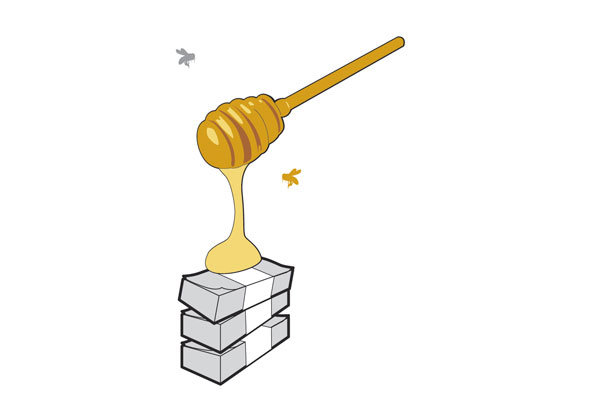
To “put the bee on” someone can mean to ask them for money, often with a piteous, woe-is-I tale. Webb Garrison, a late historian and dean at Emory University, traced the term to America’s frontier days. Poor churchgoers would organize “bees”—meetings where everyone pitched in—to pay their preachers; donation collectors would have to “put the bee on” those who were less willing contribute.
The Birds and the Bees
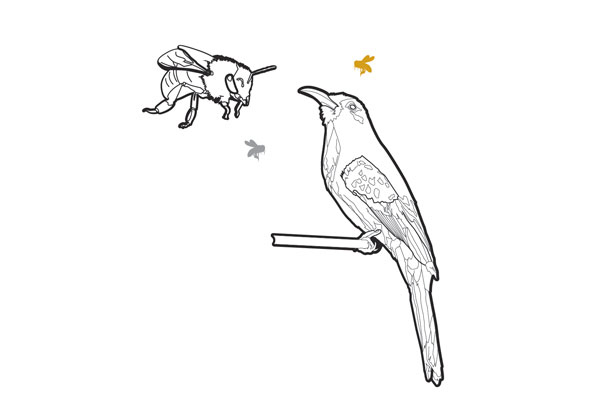
There is no better known euphemism for sex education than “the birds and the bees,” which dates back to at least the late 1800s. In a 1928 ditty, Cole Porter helped immortalize the metaphor: “Birds do it, bees do it,” he sang. “Even educated fleas do it. Let’s do it, let’s fall in love.” In their 1962 dictionary of phrase origins, William and Mary Morris link this idiom to lines by Romantic poet Samuel Taylor Coleridge: “All nature seems at work … The bees are stirring–birds are on wing … I the while, the sole unbusy thing, nor honey make, nor pair, nor build, nor sing.”
Bee In One’s Bonnet
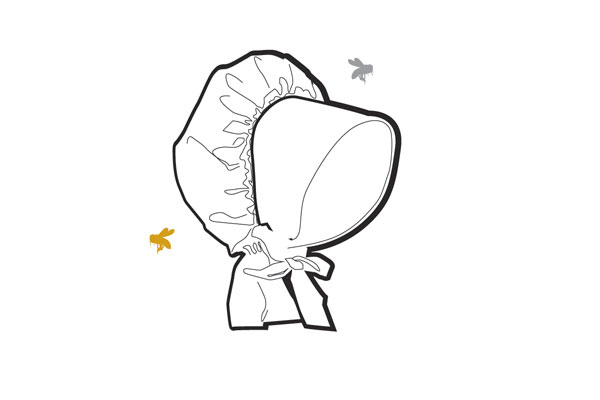
A Scottish translation of Virgil’s Aeneid from 1553 contains a precursor to this epic phrase: “hede full of beis.” The idiom, meaning to be preoccupied with an eccentric idea, conjures the agitated, myopic state one would be in if one found a bee was buzzing around inside one’s hat. Centuries ago, having “maggots in your braines” was used similarly.
None of Your Beeswax
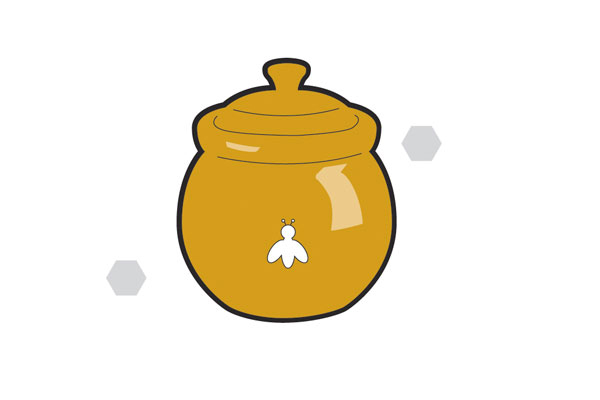
Like the “bee’s knees,” this euphemism for “it’s none of your business” was go-to slang in the roaring ’20s. English author and etymology expert Mark Forsyth points out that in the 19th century, beeswax was shorthand for “tedious bore” and suggests the adaptation may be akin to “stop prying, you dullard.” On the other hand, he says, it may just be a “humorous alteration,” given how similar business and beeswax sound. See also: Mind your own beeswax.
The Bee’s Knees
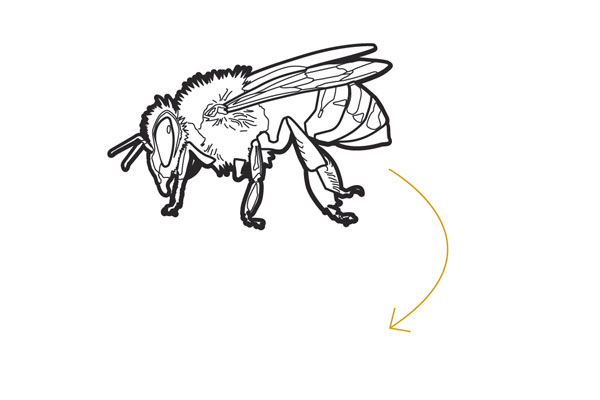
In the late 18th century, this slang term for something stylish and excellent actually referred to something small, weak or insignificant, such as the joint in a bee’s little leg. Flappers likely repurposed the phrase in the 1920s, when animalistic phrases for groovy stuff–like the “cat’s whiskers,” the “snake’s hips” and the “flea’s eyebrows”—were all the rage.
Bee-stung Lips
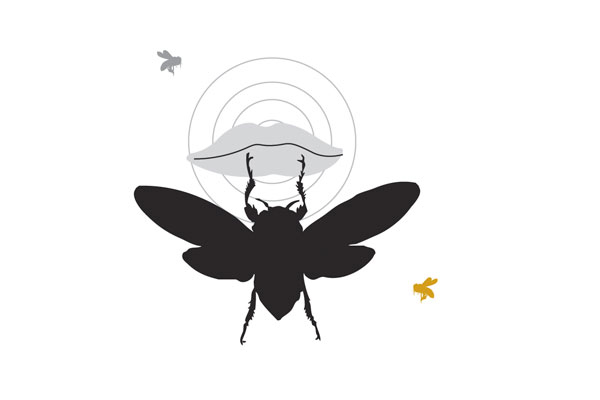
Mae Murray, a star of the silent movie era, was known as “the girl with the bee-stung lips,” after a publicist noticed her natural pout. Many other starlets with full, sensuous puckers–looking as if they had been stung by bees–have since shared the label. Mixologists meanwhile turned the phrase, which has been around since at least the 1850s, into a drink made with honey, light rum and heavy cream.
Make a Bee-line
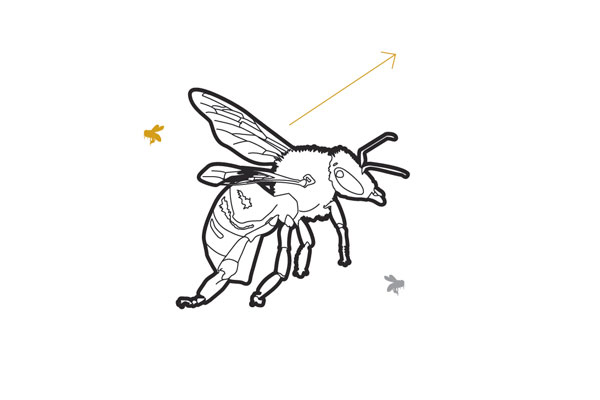
A bee-line is a straight one between two points; making a bee-line typically means to zoom straight toward a place that one needs or desires—like a bathroom or cocktail bar—ignoring everything else along the way. The Oxford English Dictionary links this phrase to the focused line a bee is “supposed instinctively to take in returning to its hive.”
The process for picking the spelling words is top secret. The officials at Scripps who put on the bee guard their process for developing the word list like nuclear launch codes. There is a word committee, whose members are secret. The sources they use are secret. The qualities they look for are secret. “The nature of how that comes to be is something that needs to be protected,” says Scripps spokesperson Valerie Miller. There are whispers that some word committee members are dictionary officials, while others are former spelling champions themselves.
It is known that words get harder as the competition goes on. Words in the preliminary rounds come from study guides of about 1,500 words that are given to the spellers when they advance to the national finals. But once spellers get to the semi-finals and finals, the words they face could be any of the roughly 472,000 that are in Merriam-Webster’s Third Edition. When the contest comes down to three or fewer spellers in the final, officials advance to a special “championship list.”
There can be up to three co-champions of the bee. Once the spellers have advanced to the championship list of 25 words, there’s no other place to go. If everyone still in the game at that point spells all the words correctly as the officials go through the list, then everyone wins. That’s why there were two co-champions in 2014.
Spellers of South Asian descent have long dominated the bee. For the first time, bee director Paige Kimble recently talked about an obvious but sensitive trend: the spelling domination of Indian-American students. They’ve won the last seven years and all but four of the past 15 years, which led to some ugly comments on social media last year about “real Americans.” Miller says some research into the trend—by academics like Northwestern’s Shalini Shankar—has found that “grit” is the winners’ key attribute. Accomplishment, competition and early literacy are also important in South Asian cultures, Miller says: “When you pair up that love of competition with encouragement and emphasis on education, [spelling bees] are a natural fit.”
The real killer at the bee isn’t nerves; it’s the schwa. There are some obvious characteristics that make words tough to spell, like silent letters (mnemonic), double letters (braggadocio) or single letters where you might expect double letters (sassafras). But the true nemesis of spellers is the schwa, the vowel sound that we hear in words like America, belief and history. The schwa can be rendered as any vowel and even be silent in words like rhyth(ə)m. “The schwa is the richest source of guesses in the final rounds, the most common source of confusion,” says Merriam-Webster’s Peter Sokolowski. “These are championship spellers and that’s the most common error at highest, highest level.”
More Must-Reads from TIME
- Breaking Down the 2024 Election Calendar
- How Nayib Bukele’s ‘Iron Fist’ Has Transformed El Salvador
- What if Ultra-Processed Foods Aren’t as Bad as You Think?
- How Ukraine Beat Russia in the Battle of the Black Sea
- Long COVID Looks Different in Kids
- How Project 2025 Would Jeopardize Americans’ Health
- What a $129 Frying Pan Says About America’s Eating Habits
- The 32 Most Anticipated Books of Fall 2024
Contact us at letters@time.com